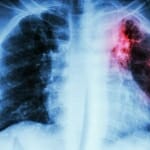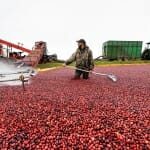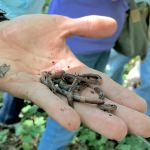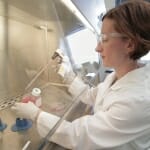Tag Research
Cartoons communicate issues in bioethics research
The comics span topics from gene editing to clinical trials and statistical manipulations. Many are ultimately about how truthfully research is communicated — to patients, to the public, even to other scientists.
Cancer patients who tell their life story find more peace, less depression
A new study finds that delivering an edited life and cancer story elicited by a phone conversation measurably enhances the sense of peace in the face of looming death.
Bringing cheap and accurate tuberculosis tests to Africa
Researchers are developing a "robust, simple and inexpensive way to increase the sensitivity of an existing TB test" by integrating a step very similar to a pregnancy test.
Report: Focusing on advanced energy sensors and controls could mean 44,000 jobs for Wisconsin
With targeted investments and forward-looking policies, Wisconsin could capitalize on its strengths in sensors and controls for the advanced energy industry to drive economic growth and support over 44,000 jobs annually.
As influenza looms, Madison firm advances human trials of revolutionary vaccine
One of the most promising universal flu vaccines is being developed by FluGen, a spinoff from the University of Wisconsin–Madison. Next up is an experimental trial.
Radar adds technological twist to age-old cranberry counting process
UW electrical and computer engineers, acting on an idea from a Wisconsin cranberry grower, have developed a device to make a laborious, time-consuming process more efficient.
Study advances gene therapy for glaucoma
A new study shows an improved tactic for delivering new genes into the eye's drain, called the trabecular meshwork, offering a promising treatment for glaucoma.
Invasive worms spreading in Arboretum forests, limited effects so far
Despite Asian jumping worms’ known appetite for leaf litter and tendency to change soil nutrients, researchers found limited evidence of changes to vegetation in areas where the worms have invaded the UW–Madison Arboretum.
Lethal management of wolves in one place may make things worse nearby
Farms that had a wolf killed experienced a 27 percent decrease in risk of another attack, but it was offset by a 22 percent increase at a number of farms in the same township.
Scouting the eagles: Evidence that protecting nests aids reproduction
Reproduction among bald eagles in a remote national park in Minnesota was aided when their nests were protected from human disturbance, according to a new study.
Wisconsin corridor turns testbed for connected vehicle technology
A team of UW–Madison researchers and Madison traffic engineers are establishing a testbed for a connected vehicle corridor on Madison's Park Street, to explore the future of transportation technology.
New stem cell method sheds light on a telltale sign of heart disease
A regenerative biology team at the Morgridge Institute for Research led by Dave Vereide unexpectedly unearthed a powerful new model for studying a hallmark of vascular disease.
Lake Michigan waterfowl botulism deaths linked to warm waters, algae
UW-Madison researchers, with the help of citizen scientists, tracked bird deaths along Lake Michigan, and found that warm waters and algae apparently promoted the growth of botulism toxin-producing bacteria that caused them.
Cracking the code of coenzyme Q biosynthesis
A research group is chipping away at many of these knowledge gaps in CoQ production and in understanding the role of CoQ deficiency in human diseases.
Progress made toward treatment for rare, fatal neurological disease
Promising results in the lab and in animal models could set the stage for developing a treatment for Alexander disease, a rare and usually fatal neurological disease with no known cure.




















